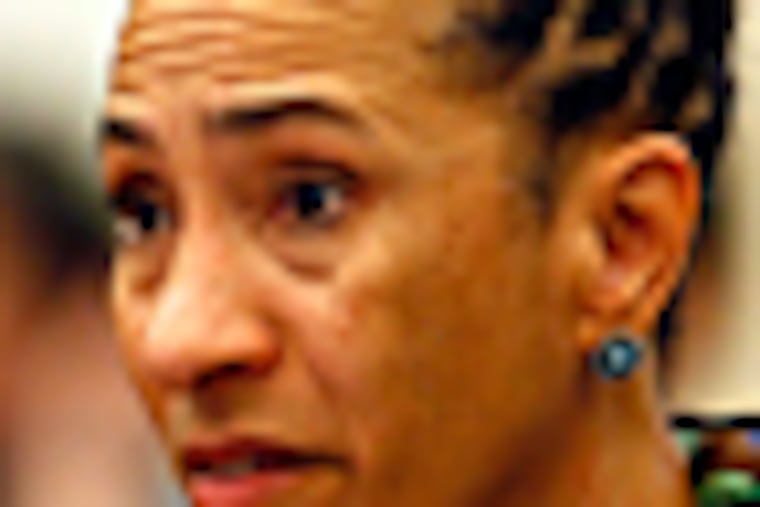New code of conduct in Philadelphia schools gives principals more leeway
Come September, Philadelphia's public school pupils will have to abide by a new code of conduct, one that gives principals more latitude in meting out discipline and means that students cannot be suspended for infractions such as using profane language or failing to follow a dress code.

Come September, Philadelphia's public school pupils will have to abide by a new code of conduct, one that gives principals more latitude in meting out discipline and means that students cannot be suspended for infractions such as using profane language or failing to follow a dress code.
School Reform Commissioner Lorene Cary spearheaded the move to a new code of conduct, which the SRC approved unanimously Thursday. The new policy is the most extensive set of revisions to the student rules in years.
"The idea is that the best way to be safer is to change our culture to a safe culture," said Cary, who chairs the SRC's safety committee. "We really have looked at prevention."
Greg Shannon, the Philadelphia School District official in charge of disciplinary hearings and expulsions, said that everyone from principals to community advocates made it clear: The old method wasn't working.
"We needed options," Shannon told the SRC. "One size fits all did not always work and was not always in the best interest of children."
Principals will have a menu of choices. A fight might still result in an out-of-school suspension, but the administrator might opt to assign an in-school suspension. Drug possession could mean a disciplinary school assignment or expulsion, or it might mean just an out-of-school suspension.
Infractions classified as crimes must still be reported to city police, as required by law.
Serious charges still require serious penalties under the code. A student who possesses a weapon will still face a disciplinary school assignment or referral for expulsion.
But gone are the days of out-of-school suspensions for low-level infractions: cutting class, perpetual lateness, failure to carry a hall pass.
The district has historically relied heavily on out-of-school suspensions to attempt to correct poor behavior. But earlier this week, incoming Superintendent William R. Hite Jr. was clear on the issue.
"We can't suspend our way to higher student achievement. We can't arrest or suspend our way to safer schools," Hite told principals at a three-day safety summit.
The focus now is on in-school intervention.
"Though there can be no excuse for behavior that harms or disrupts, there may be reasons that caring adults in school need to understand. We educate the whole child," the code declares. It lists a range of in-school intervention that should be employed, from "get a student's attention by calling his/her name in a calm voice" and "address the student in private" to drawing up behavioral contracts.
If those fail, out-of-school suspensions may be used, but not for certain offenses, even if they are repeated. In the past, repeated violations of a low-level offense, such as cursing or failing to adhere to a dress code, could trigger an out-of-school suspension. Principals will no longer have that option.
"All the research says that suspension has its place, and it's needed at times, but for things like this, it's not an effective tool," said Jody Greenblatt, a lawyer whose two-year school-safety fellowship at the district was recently announced.
Added Cary: "If students are suspended regularly for repeated small incidents, it doesn't mean much."
Shannon, a former district principal, said schools must develop strategies to figure out why a student is repeatedly breaking rules.
"We have to say, 'Why are you coming to school out of uniform, and what can we do to support you? What can we do to get you in uniform, or get you a uniform?' " Shannon said.
Cary acknowledged that asking school staff to dig yet deeper in an era of brutal district budget cuts was tough.
"There is no more public revenue there, but part of what this crew and the professional development people are working very hard on is how to figure out getting other resources that are available," she said.
Many successful principals already use community resources, officials said. Part of Greenblatt's job is to work with organizations and governmental agencies to figure out how the district can better help its students.
The code of changes won mostly high praise from advocates, who helped shape it.
"We think the district is moving in the right direction," said Yvonne Knight, a district student and a member of Youth United for Change.
Others said the code focused too much on the punitive and not enough on restorative justice, positive behavioral support, and peer mediation.
Cary said that although they are not spelled out in the code of conduct, the district was focused on such strategies and will spend money to implement them in some city schools.
"We are going to pay for it," she said.
Some students asked for language on dress-code issues for gender-nonconforming students (those who dress in a manner not typically associated with their sex); initially, the SRC told advocates they would consider such language next year.
But SRC Chairman Pedro Ramos said that was too long to wait. At his suggestion, language protecting such students' rights will be added this year.
The changes to the code of conduct follow a 2011 Inquirer investigative series that found that district violence was widespread and underreported and that the district's main intervention program was little more than an exercise in paper shuffling.
Since then, officials say, they have encouraged more accurate reporting of violence and turned the district toward prevention. A blue-ribbon panel on school safety encouraged the change, as well as a revision of the student code of conduct.